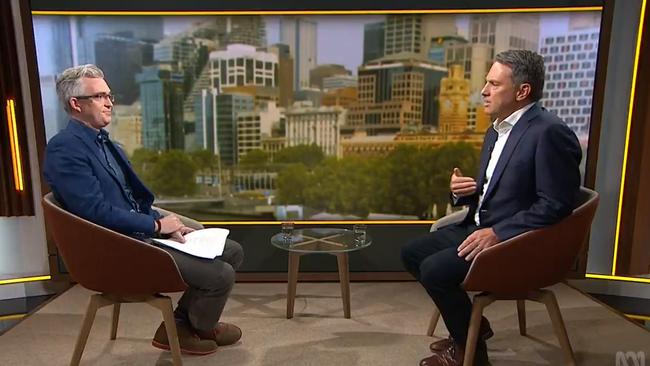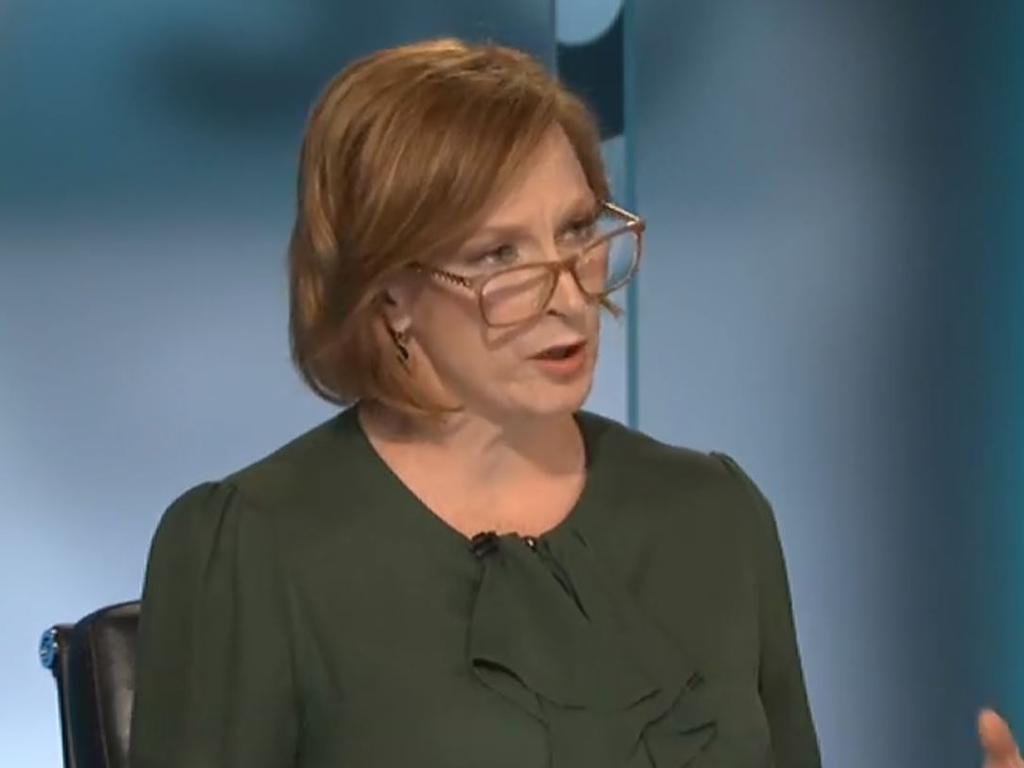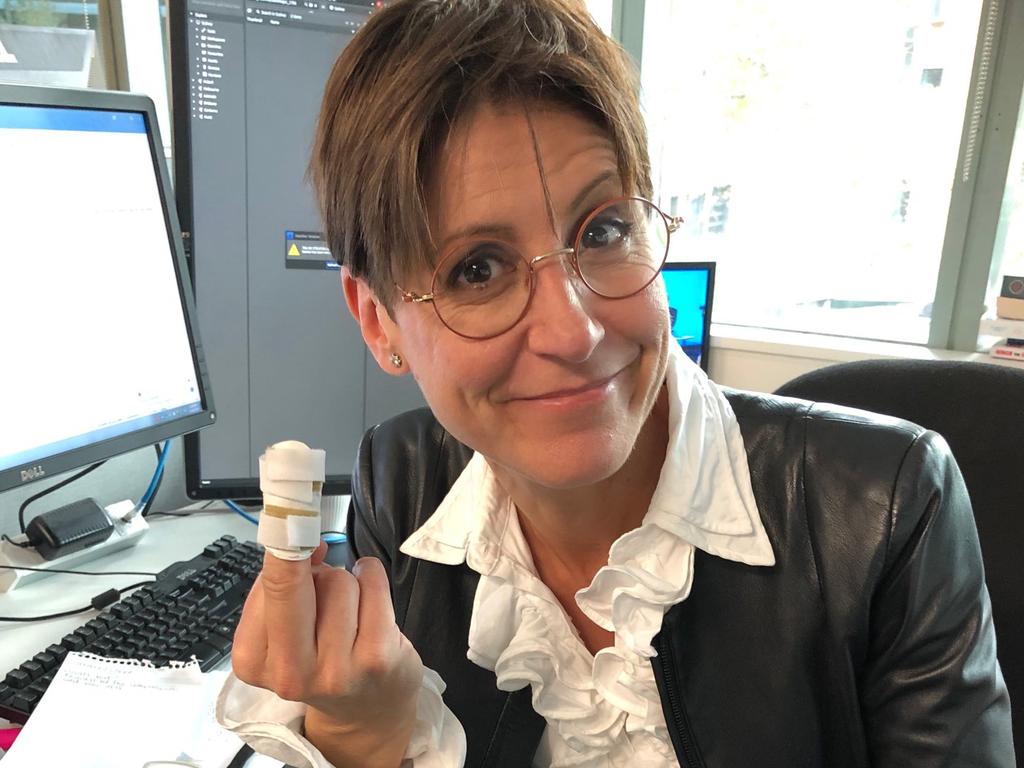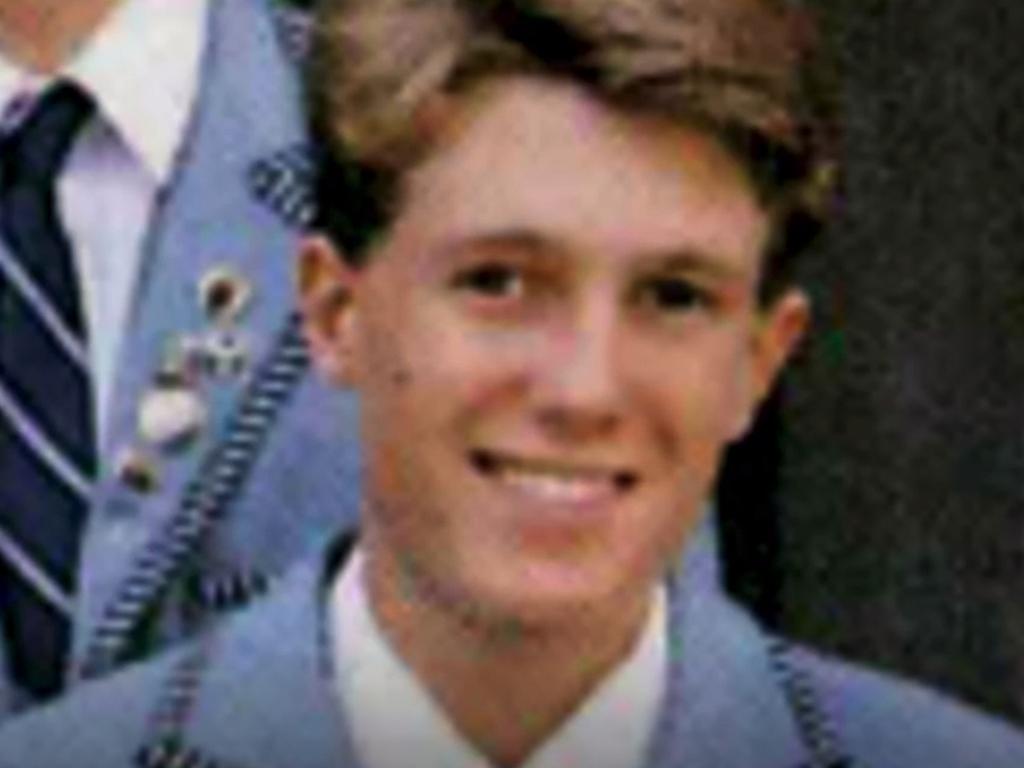Who’d be a guest with an ideological host such as Aunty?
An increasing number of Coalition ministers see little point in giving up valuable time to appear on the ABC — and why would they?

Victorian Liberal Party backbenchers Katie Allen (MP for Higgins) and senator Sarah Henderson stepped up to the task and performed very well. But it was not the same as having the Prime Minister or a senior cabinet minister.
On Tuesday, March 23, 7.30 presenter Leigh Sales made a similar on-air complaint. She said Morrison had been invited to do an interview on more than 13 occasions during the previous month and had declined all offers. Executive producer Justin Stevens decided to illustrate the point by showing an empty chair — a visual cliche if ever there was one.
Neither Sales nor Stevens told viewers that the Prime Minister had not been on the program since late last year when 7.30’s political correspondent Laura Tingle, in a late-night tweet, accused Morrison of “ideological bastardry”. Instead of obliging 7.30, Morrison agreed to an interview on March 25 with the Nine Network’s Tracy Grimshaw on A Current Affair.
It would seem that an increasing number of Coalition ministers see little point in giving up valuable time to appear on the ABC, which remains a conservative-free zone, without one conservative presenter, producer or editor for any of its prominent outlets.
Last week, former ABC journalist Barrie Cassidy tweeted that “John Howard never retreated; he backed himself against the best (Kerry O’Brien et al)”. That’s true. But Howard ceased being a prime minister more than a decade ago.
Since then, the ABC has lost viewers to Sky News and social media has blossomed. When O’Brien presented 7.30 between 1995 and 2010, Coalition leaders had few alternatives to the ABC if they wanted to present their views to rural and regional Australia. This is no longer the case.
And there’s another point. As Sales has acknowledged, Morrison appeared on 7.30 on no fewer than five occasions last year. But that was before Tingle referred to his alleged “ideological bastardry”. Grimshaw is no soft interviewer, but at least she keeps her private political thoughts to herself.
Right now ABC managing director and editor-in-chief David Anderson presides over what is in effect a staff collective that management does not control. To be fair to Anderson, it was also the same with his immediate predecessors, Michelle Guthrie and Mark Scott.
Anderson’s predicament was evident when he appeared before Senate estimates on March 23. Liberal Party senator Andrew Bragg asked Anderson if he thought it appropriate for someone working at the ABC to describe the Morrison government as fascist.
The reference was to Richard Ferguson’s report in The Australian online that day that Sebastien Maury, a senior ABC lawyer, had labelled the Coalition government as “fascist” and described the Prime Minister as “a bad person and an awful prime minister”. Following the Four Corners’ hostile program on (then) attorney-general Christian Porter in November last year, Maury tweeted: “If this doesn’t finish his career then nothing means anything.”
Anderson told Bragg he was “disappointed to hear” about Maury’s comments, which he had just learned about, and added “we will be looking into it”. It turns out that the matter has been flicked to the bureaucrats in the ABC people and culture department (human resources). I was advised by the ABC on Wednesday that “this is an internal matter at present”. But is it? A senior ABC lawyer describes the Morrison government as “fascist” and Anderson has nothing immediate to say about the matter.
Then senator Eric Abetz asked Anderson about $US2500 that the ABC paid left-wing activist John Sullivan for non-exclusive footage of the riot that took place at the US Capitol on January 6. This was shown at some length in Sarah Ferguson’s Four Corners program Downfall: The Last Days of President Trump, which aired on February 1.
The question was whether the ABC knew that Sullivan had already faced charges for riot when he participated in a Black Lives Matter protest. Anderson was not aware of this. Abetz then asked whether it was ABC policy to give money to a provocateur who ran around the Capitol building bearing a knife and calling out “Burn this shit down”. Anderson meekly responded, “I will give you a full response on notice.”
The fact is that Anderson and his management team should have been aware of the Maury and Sullivan incidents. But managerial ignorance is common when the staff run the joint.
Anderson told Senate estimates that the ABC “has a statutory obligation to be impartial at all times” and added that the ABC did not employ people based on “political ideology”. Strange, then, that no one at the ABC has put a name to a conservative on a prominent program.
The problem is that even the ABC’s commissioned reports do not support Anderson’s contention. Last December, the ABC fought hard, but ultimately unsuccessfully, to prevent the publication of its 2019 election impartiality review conducted by former senior BBC journalist Kerry Blackburn. This was covered in my Media Watch Dog blog on February 19.
The Blackburn report found that the content of Insiders (executive producer Sam Clark) in the lead-up to the May 2019 election was much more favourable to Labor than the Coalition. Blackburn made a similar finding with respect to ABC TV’s The Drum, presented by Julia Baird and Ellen Fanning.
The point here is that the coverage by Insiders and The Drum of the 2019 election had no impact on the result. The same can be said for 7.30 and Q&A. If ABC TV programs determined election results, a green-left administration would have been in office in Canberra for decades.
While the ABC remains a conservative-free zone, there is more downside than upside to Coalition leaders appearing on the national broadcaster.
Alas, it seems that the likes of Speers and Sales and their producers have yet to wake up to this reality.
Gerard Henderson is executive director of the Sydney Institute.







Last Sunday, ABC TV Insiders presenter David Speers told viewers that neither Scott Morrison nor the Minister for Foreign Affairs and Women Marise Payne had agreed to be interviewed for the program.